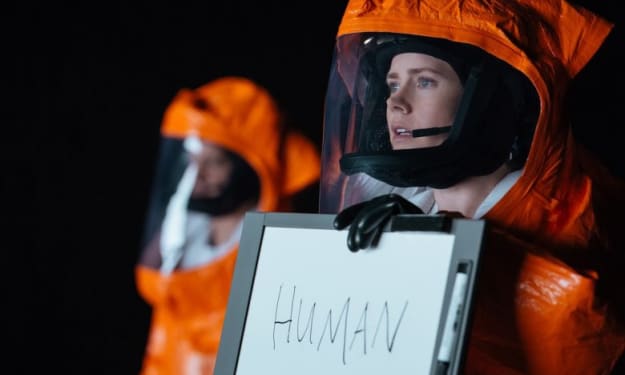Reviewing Charlie Brooker’s ‘Black Mirror’, Season 3
A brilliant, profoundly unsettling vision of the present.

When Black Mirror first hit television screens in 2011, it was a quintessentially British creation. Episode 1, The National Anthem, shows an upstanding prime minister blackmailed into live sexual intercourse with a pig. The public responds with cynicism and ironic detachment, mocking the man on twitter, as the media scrambles for a scoop. The episodes that followed continued the condemnation of British culture – Brooker had given us a black mirror, reflecting us at our very worst. In Fifteen Million Merits he showed us powering the workings of an authoritarian regime, bombarded by advertising with an X-factor style talent show our only means of salvation. In White Bear, the justice system has been replaced by a sickening spectacle of psychological torture, with amnesiac criminals forced to relive their crimes, as children watch on. In The Waldo Moment, he shows a disaffected public voting a foul-mouthed CGI bear into office, rather than careerist politicians. The result is a degeneration into violence and fascism.
Despite its British focus, Black Mirror had international success. Charlie Brooker was transformed from a little-known comedian and journalist into one of the most highly-regarded science fiction writers of his generation. To understand why, we need to consider the current context.
The 21st century has seen a massive transformation in individual and social life. We are a globalised, hyperconnected species, constantly in touch with a rapidly changing world. This has brought with it innovation, new technologies, and new forms of culture, but it is also an inherently traumatic process. Old ways of being have been destroyed, with religious, community and moral foundations stripped away. There is increasing alienation, loneliness, and widespread pessimism about a future defined by climate change and economic upheaval. In Black Mirror, Brooker has tapped in to that negativity, portraying a series of dystopias that exaggerate our worst fears about a changing world. The effect is engrossing, even hypnotic. It’s similar to that of psychological horror – there is a strange catharsis in confronting fear.
For the third series, the show has moved from Channel 4 to Netflix. With an increasingly international audience, the focus has also changed – rather than critique the dark sides of British public life, Brooker has zeroed in on technology. The result is a true masterpiece of science fiction.
The most successful sci-fi writers can usually be placed in one of two categories. The first group create worlds that, although far removed from our own, are still within reach. This includes works like Nineteen Eighty-Four and Brave New World, which succeed because they are believable. Even at their most weird, they feel real. The drug-dependent, oversexed citizens of Huxley’s World State, endlessly consuming in an inverted utopia, resonate with our modern selves. The horrors of Orwell’s Airstrip One exist in authoritarian regimes. The authors carefully constrain their imaginations, locating their stories within the possible.
The other group take the opposite approach. The worlds of Philip K Dick and Roger Zelazny, Theodore Sturgeon and Walter M Miller Jr push beyond the real. Their stories are psychedelic journeys through theological dreamscapes; they fizz with the fantastic, their deranged characters making illogical semi-sense of bizarre plot-lines.
The first two series of Black Mirror don’t conform to this dichotomy. They’re sufficiently close to our own experience to be deeply unsettling, but never quite feel real. In the third series, however, Brooker has placed the show firmly within the first group. This creates stories that truly terrify.
An increased budget, combined with a stellar cast of international actors and varied locations, has enabled an exploration of the most exciting modern technologies. In Nosedive, our social status is inextricably linked to our social media ‘rating’. This forces a life spent constantly faking a smile, documenting life’s banal minutiae with cloying perfection. It brings to mind the very worst of social media spin - the airbrushed falseness of Instagram; the groupthink of wellness; the duckfaced models carefully finding that perfect pose. Bryce Dallas Howard and Alice Eve are very convincing as status-obsessed socialites.
Playtest sees an American man travelling in Britain, when he finds an advert for a testing job at a video game company. The ensuing experience is deeply unsettling, as we confront the very real possibilities of virtual reality horror.
Shut Up and Dance explores the potentials of hacking and malware, with misbehaving internet-users blackmailed into a death-spiral of criminality. Alex Lawther gives a fantastic performance as a frightened teenager, and Jerome Flynn (Bronn from Game of Thrones) provides great chemistry.
San Junipero is a markedly different experience. Perhaps the weakest episode in the series, it nevertheless gives a welcome respite. An exercise in nostalgia, we find the same characters visiting an American town in different time periods, creating a vision of imperfect immortality.
Men Against Fire showcases Jakob Verbruggen’s director-credentials, as a young soldier battles against ‘roaches’ (subhuman terrorists). When his mind-machine interface begins to malfunction, we receive a stark warning about the ethics of human enhancement.
Hated in the Nation returns to one of Brooker’s favourite themes: the nastiness of the online world. When twitter-targets begin dying in agonising pain, DCI Karin Parke (Kelly Macdonald) finds a terrifying answer. Reminiscent of Alfred Hitchcock’s The Birds, this episode provides a surprisingly subtle lesson in the dangers of artificial intelligence and environmental destruction.
Black Mirror is, to my mind, the best science fiction series in decades. These standalone episodes are well-written, well-directed, and totally compelling. Watch it.
About the Creator
Ed Venables
Aspiring neurophilosopher. Currently doing EEG research at the Sackler Centre for Consciousness Science.






Comments
There are no comments for this story
Be the first to respond and start the conversation.